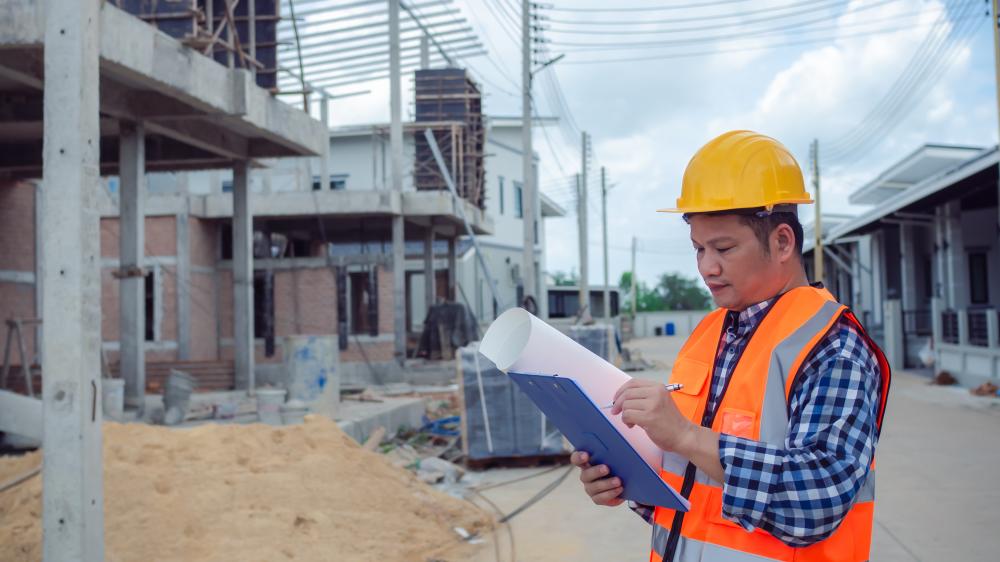
The Importance of Contractor Licensing
In the world of construction and contracting, obtaining a license is a crucial step for any aspiring professional. Licensing provides credibility and assures clients that the contractor has the necessary skills and knowledge to complete projects effectively and legally. Beyond credibility, a contractor’s license often opens doors to larger and more lucrative projects, providing a pathway to business growth and success.
The necessity for licensing is not just about legal compliance; it’s a testament to professionalism and a commitment to adhering to industry standards. By holding a license, a contractor signals to their clients that they respect the established regulations and are prepared to deliver services that meet the expected quality and safety benchmarks. This distinction can significantly influence client trust and decision-making.
Navigating Licensing Requirements
Licensing requirements vary significantly across states and can even differ within local jurisdictions. Therefore, understanding the specific requirements for your area is essential. States like California, Florida, and Texas have their unique sets of rules and exams tailored to local regulations and construction practices. Knowing these intricacies is crucial for passing the required exams and successfully obtaining a license.
Generally, a practice test for general contractor license exams will cover areas specific to the tasks a contractor is expected to perform. Topics might include building codes, safety regulations, contract management, and more. It is essential to be well-versed in these subjects to pass the exam, as they form the backbone of the construction industry’s regulatory environment.
Benefits of Practice Tests
Engaging with a practice test for general contractor license allows individuals to familiarize themselves with the exam format and types of questions they will face. These practice tests replicate the time constraints and question styles of the actual exams, providing a real-world feel to the preparation process. This practice ensures that candidates are not only knowledgeable but also adept at managing their time during the exam.
Additionally, practice tests can help identify areas where more study is needed, offering a focused approach to exam preparation. By taking multiple practice tests, individuals can track their progress and refine their strategies for finding and understanding information quickly. This concentrated study effort can be a critical factor in achieving the passing score typically required in most states.
Developing Effective Test Taking Strategies
One of the key components to succeeding in the practice test for general contractor license is mastering test-taking strategies. Time management plays a significant role, as candidates must pace themselves to answer all questions within the allotted time. Practicing under timed conditions helps develop this skill, allowing test-takers to manage stress and maintain focus.
Another essential strategy involves learning how to quickly locate answers within study materials, as many licensing exams are open-book. This approach requires a thorough understanding of how study materials are organized, which entails recognizing keywords and employing efficient navigation techniques through reference books. This skill not only aids in exams but also enhances one’s practical capabilities as a contractor.
Incorporating Real-World Insights and Experiences
Many professionals who have successfully passed licensing exams emphasize the value of integrating real-world experiences into their study routine. Applying practical knowledge to exam scenarios can bridge the gap between theoretical learning and practical application. This approach not only enriches the study process but also enhances one’s ability to recall information during the exam.
Incorporating insights from mentors or colleagues who have gone through the licensing process can also provide valuable tips and advice. Hearing firsthand experiences about the challenges and successes faced during exam preparation can motivate and guide aspiring contractors, offering a unique perspective that is often missing from textbooks.
Utilizing Feedback to Improve
A valuable aspect of using a practice test for general contractor license is the feedback provided on incorrect answers. Detailed feedback helps identify knowledge gaps and directs focus towards areas that need improvement. Understanding why an answer was incorrect is just as important as knowing the correct one, as it deepens comprehension and prevents future errors.
Feedback also offers a chance for reflection and adjustment in study habits. By analyzing areas of weakness, test-takers can adjust their preparation schedule to allocate more time to challenging subjects, thereby improving their overall readiness for the actual licensing exam.
The Importance of Practical Skills
While theoretical knowledge is crucial for passing the practice test for general contractor license, practical skills are equally important. The construction industry demands not only an understanding of codes and regulations but also the ability to apply this knowledge in real-world situations. An effective contractor must balance both theoretical insight and hands-on capabilities to excel in their field.
Workshops and hands-on training sessions can complement traditional study methods, offering a well-rounded approach to exam preparation. These practical experiences allow candidates to engage with the material actively, reinforcing learning and ensuring they are equipped to meet industry expectations.
Building Confidence Through Preparation
Confidence plays a significant role in exam success. By thoroughly preparing using practice tests, candidates can build the confidence needed to approach the exam calmly and assertively. Confidence stems from familiarity with the exam process and assurance in one’s knowledge and abilities.
This sense of confidence not only enhances exam performance but also translates into professional work as a licensed contractor. Clients and employers often notice confidence, which can lead to increased opportunities and successful project outcomes. Building this confidence is as much a part of the preparation process as learning the material itself.
Accessibility and Resource Availability
Access to resources and study materials is a crucial component of effective exam preparation. Organizations like Contractor Practice Exam offer curated practice tests and study guides tailored to specific state requirements. These resources are designed to simplify the complex licensing process, making it more accessible to a wider range of individuals.
Leveraging available resources can significantly enhance the preparation process, offering targeted support and insights. Many organizations provide additional support through online platforms, making it easier for busy professionals to access the information they need anytime, anywhere.
Embracing Challenges in the Licensing Process
The journey to becoming a licensed contractor is filled with challenges, but embracing these obstacles can lead to personal and professional growth. Each challenge is an opportunity to learn and improve, offering experiences that will prove invaluable in future projects and endeavors.
Approaching the licensing process with a proactive and positive mindset can turn potential setbacks into stepping stones. With determination, effective study practices, and the right resources, aspiring contractors can successfully navigate the path to licensure and confidently step into their professional roles.

What is the Importance of Practice Tests in Contractor Licensing?
Practice tests serve as a crucial tool in preparing for contractor licensing exams. They simulate the actual exam environment, allowing individuals to familiarize themselves with the format and types of questions they will encounter. A colleague of mine once shared how taking multiple practice tests significantly boosted their confidence on exam day. They knew what to expect, and this reduced their anxiety. By mirroring the time constraints and complexity of real exams, practice tests ensure that candidates can manage their time effectively and focus their studies on areas that require more attention.
Moreover, these tests help identify knowledge gaps. If you’re consistently missing questions related to, say, building codes, it’s a clear signal to dive deeper into that subject. This targeted preparation can lead to a more efficient study routine, ultimately enhancing your chances of passing the exam with the required score.
Have you found certain aspects of exam preparation intimidating, and how might a practice test help alleviate those concerns?
What are Some Common Misconceptions About Licensing Requirements?
One common misconception is that contractor licensing requirements are the same across all states. In reality, each state–and sometimes local jurisdictions–may have their own specific rules and exams tailored to local regulations. I remember speaking with a contractor who moved from Florida to California and was surprised to learn that they had to adjust their study materials significantly to meet California’s unique standards.
Another misconception is that passing the exam is solely about theoretical knowledge. While understanding building codes and safety regulations is essential, practical skills and real-world experience also play a significant role. It’s about balancing both to excel in your field.
Understanding the intricacies of these requirements is vital. Have you encountered any surprises in your licensing journey that challenged your initial assumptions?
What are Some Advanced Insights on Test-Taking Strategies?
Advanced test-taking strategies go beyond just knowledge; they involve mastering time management and efficient navigation of open-book exams. A contractor I know aced their exam by developing rapid referencing skills, which allowed them to quickly locate answers within study materials during the test.
To succeed, one must practice under timed conditions to simulate stress and focus on recognizing keywords and efficiently moving through reference books. This not only aids in exams but enhances practical capabilities. Additionally, engaging in study groups can provide diverse perspectives and tips on managing difficult sections of the exam.
How might you incorporate these strategies into your current study routine to enhance your exam preparation?
How Can Real-World Insights and Experiences be Integrated into Exam Preparation?
Real-world experiences can greatly enhance exam preparation by bridging the gap between theoretical learning and practical application. Consider incorporating real project experiences into your study routine. For example, analyzing past projects for their compliance with safety regulations can provide practical contexts that make theoretical principles more memorable.
Mentors and colleagues are invaluable resources for insights. A conversation with a seasoned contractor who has successfully navigated the licensing process can provide you with practical tips and motivational stories. Their firsthand experiences offer a perspective that is often missing from textbooks.
What real-world experiences from your career could you utilize to enrich your exam preparation process?
How Can Feedback from Practice Tests be Utilized for Improvement?
Feedback from practice tests is instrumental for personal development and success on the actual exam. It highlights areas where you may have misunderstood concepts, offering an opportunity to delve deeper and clarify these topics.
Reflecting on detailed feedback about missed answers allows you to adjust your study habits. For instance, if you frequently miss questions about contract management, dedicating more time to that area can significantly improve your understanding and performance. This process of continuous improvement is akin to refining skills on a construction site–where learning from mistakes leads to better project outcomes.
What specific feedback from your practice tests have you found most beneficial, and how did it change your study approach?
How Does Building Confidence Through Preparation Influence Exam Success?
Building confidence through thorough preparation can drastically improve exam performance. Confidence comes from repeated exposure to the exam format and mastering the content, akin to how athletes practice before a big game. A friend of mine who recently took the licensing exam noted that their calm and assertive approach was largely due to the extensive practice tests they completed beforehand.
This confidence also translates into professional interactions. Employers and clients are likely to recognize and appreciate a contractor who demonstrates assurance and self-reliance, potentially leading to more opportunities. Remember, confidence is not just about self-belief; it’s about proving to yourself through preparation that you are ready.
Can you recall a time when thorough preparation boosted your confidence in a challenging situation?
Resources
- Contractors State License Center – This website provides valuable information on contractor licensing requirements and processes.
- National Association of State Contractors Licensing Agencies – Visit this site to learn about licensing agencies and requirements across different states.
- National Center for Construction Education and Research – Access resources and training programs to develop skills for the construction industry.
- Occupational Safety and Health Administration (OSHA) – Find information on safety regulations and guidelines for construction work.
- National Association of Home Builders – Explore resources and professional development opportunities for contractors in the home building industry.
